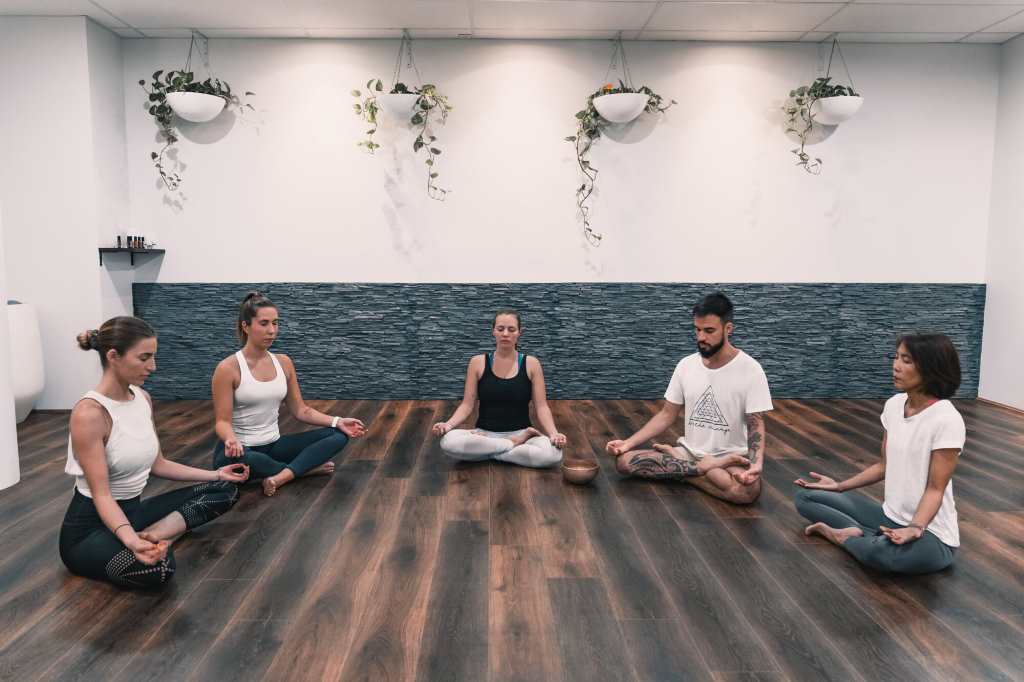In the fast-paced world we live in, stress, anxiety, and mental fatigue have become constant companions for many. The relentless demands of work, family, and social life often leave us feeling overwhelmed and disconnected from ourselves. Amidst this chaos, meditation offers a sanctuary of calm, a practice that allows us to tap into our inner peace and cultivate a sense of well-being. While the benefits of meditation have been extolled for centuries, modern research has further substantiated its profound impact on our physical, mental, and emotional health. Let’s explore why everyone should embrace the practice of meditating at least once a day.
Stress Reduction and Improved Mental Well-being
One of the most significant benefits of meditation is its ability to alleviate stress and anxiety. When we meditate, we engage the parasympathetic nervous system, responsible for inducing relaxation and counteracting the fight-or-flight response triggered by stress. Regular meditation practice has been shown to reduce the levels of cortisol, the stress hormone, leading to a calmer and more balanced state of mind. Studies have also demonstrated that meditation can help manage symptoms of anxiety disorders, depression, and post-traumatic stress disorder (PTSD).
Moreover, meditation enhances our mental clarity and focus. By training the mind to stay present and observe thoughts without judgment, we develop greater control over our mental processes. This improved concentration can benefit various aspects of life, from academic performance to professional productivity. Meditation also fosters emotional resilience, enabling us to cope more effectively with life’s challenges and setbacks.

Enhanced Self-Awareness and Emotional Regulation
Meditation invites us to turn our attention inward and cultivate a deeper understanding of ourselves. Through consistent practice, we become more aware of our thoughts, emotions, and behavioral patterns. This heightened self-awareness allows us to identify and address negative thought patterns and emotional triggers, leading to improved self-regulation and emotional balance. Meditation also cultivates self-compassion, enabling us to accept ourselves with kindness and understanding, even in moments of imperfection.
Furthermore, meditation strengthens our connection to our intuition and inner wisdom. By quieting the external noise and distractions, we create space for our inner voice to emerge, guiding us towards choices and decisions that align with our authentic selves.
Physical Health Benefits
The benefits of meditation extend beyond mental and emotional well-being. Regular meditation practice has been linked to a wide array of physical health improvements. Studies have shown that meditation can lower blood pressure, reduce inflammation, and boost the immune system. It can also alleviate chronic pain and improve sleep quality. Additionally, meditation has been found to promote healthy aging by protecting telomeres, the caps at the end of chromosomes that shorten with age.
Spiritual Growth and Connection
For many individuals, meditation serves as a pathway to spiritual growth and a deeper connection to something greater than themselves. Through meditation, we transcend the limitations of the ego and tap into a sense of oneness with the universe. This spiritual connection can foster a sense of meaning, purpose, and belonging, leading to greater fulfillment and contentment in life. However, it’s important to be aware of potential meditation side effects, which can be explored further at https://worldhealthreviews.com/lifestyle/what-are-5-side-effects-of-meditation/.
Practical Tips for Incorporating Meditation into Your Daily Routine
While the idea of meditating daily may seem daunting, even a few minutes of practice can yield significant benefits. Here are some practical tips to get you started:
- Start Small: Begin with 5-10 minutes of meditation each day and gradually increase the duration as you become more comfortable.
- Choose a Quiet Space: Find a peaceful environment where you won’t be interrupted. This could be a dedicated meditation corner in your home or a quiet spot in nature.
- Find a Comfortable Posture: Sit in a comfortable position, either on a chair or on the floor with a cushion. Keep your back straight and your shoulders relaxed.
- Focus on Your Breath: Close your eyes or soften your gaze and bring your attention to the natural flow of your breath. Observe the sensation of the breath entering and leaving your body.
- Be Patient and Kind to Yourself: Thoughts will inevitably arise during meditation. When they do, acknowledge them without judgment and gently return your focus to your breath.
- Experiment with Different Techniques: There are numerous meditation techniques available, such as mindfulness meditation, loving-kindness meditation, and guided meditation. Explore different approaches to find what resonates with you.
- Make it a Habit: Consistency is key to reaping the benefits of meditation. Aim to meditate at the same time each day, whether it’s in the morning, during your lunch break, or before bed.
Conclusion
In a world that often feels chaotic and overwhelming, meditation offers a refuge of peace and clarity. The practice of meditating at least once a day can transform our lives in profound ways, enhancing our mental, emotional, physical, and spiritual well-being. From stress reduction and improved focus to heightened self-awareness and emotional regulation, the benefits of meditation are vast and far-reaching. So, take a few minutes each day to turn inward, connect with your breath, and cultivate a sense of inner peace. Embrace the transformative power of meditation and unlock your full potential.
